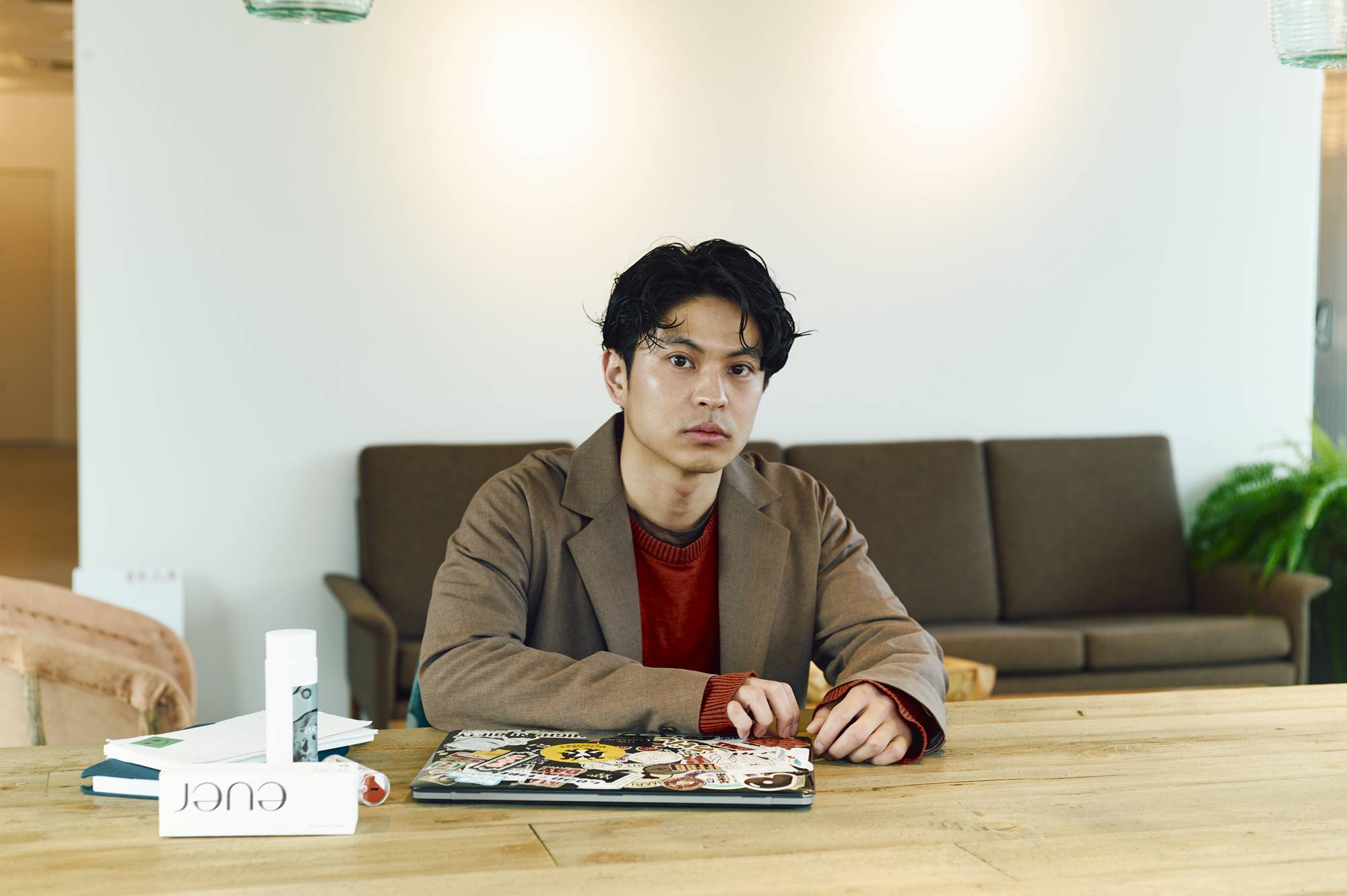Takaaki Miyake, 30, is the founder of the gender-inclusive wellness brand euer. His interest in wellness came from a desire to craft a more meaningful career beyond his background in the fashion industry, one that he hopes will bring positivity into the world. He also hopes to inspire people of all genders to find joy in daily skin care rituals.
1. What is one thing you find beautiful about Japan? I like that each region or prefecture has quite a different culture that feels unique to it. When you travel to Hokkaido, Kyoto or Okinawa, what you can experience in each place is strongly reflected in the local food, activities and landscapes.
2. Why did you want to create a wellness brand? At a certain point in my life, maybe toward the end of university, I started to feel insecure about my life and career. Somehow, I felt like I wasn’t growing as a person. The pandemic happened, and that became a trigger for me to think about my life. Eventually, I decided to work toward making a positive impact on people.



















With your current subscription plan you can comment on stories. However, before writing your first comment, please create a display name in the Profile section of your subscriber account page.